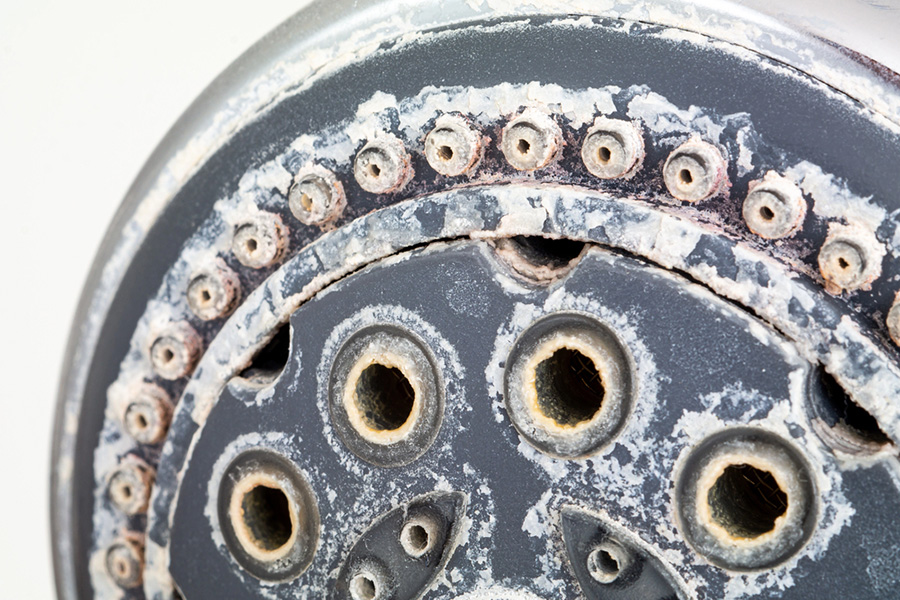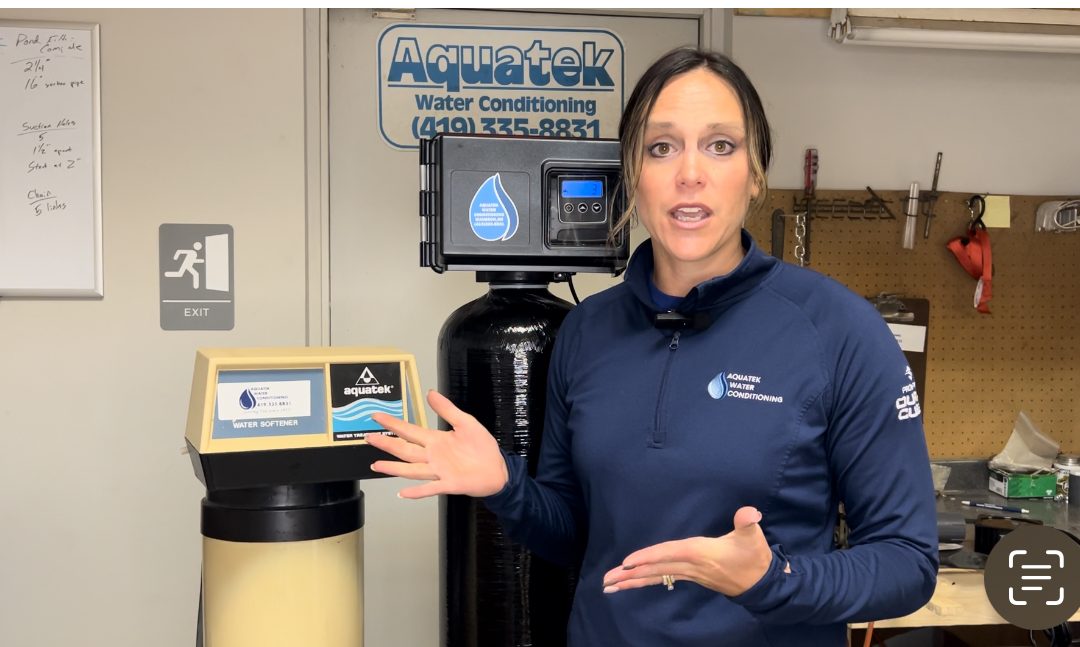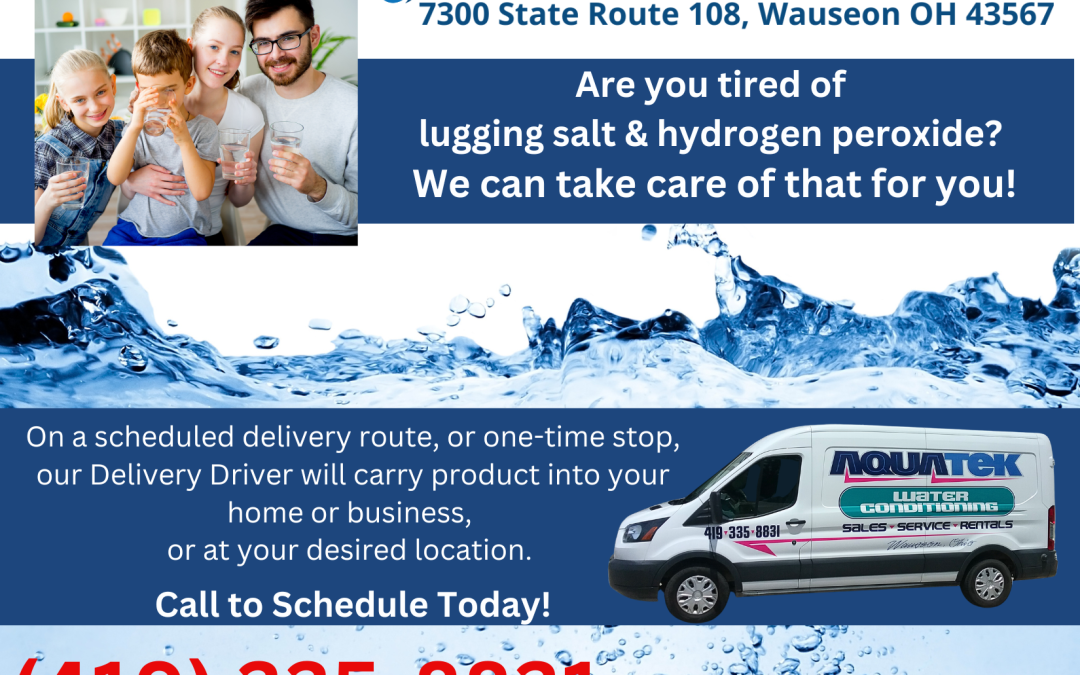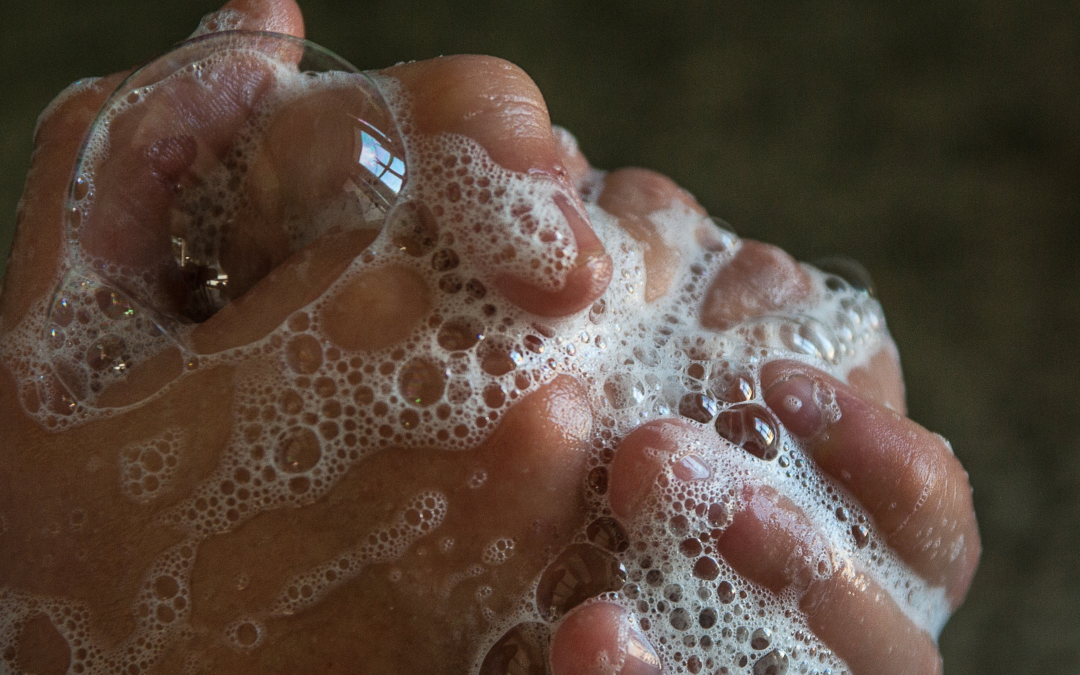
The Best Water Softener for Your Home
At Aquatek Water Conditioning, we know how important water is to your everyday life. It plays a role in nearly everything you do at home—from cooking and cleaning to bathing and laundry. But if you have hard water, it can cause more frustration than convenience. Homeowners in the Wauseon, Ohio area are no strangers to the problems caused by hard water, and we’re here to provide you with additional information to help you make the best decision for your home.
Recognizing Hard Water Problems
Hard water often comes with a range of frustrating symptoms. The Water Quality Association lists several common indicators of hard water, including:
- Stiff, scratchy, or dull-colored laundry
- White spots and mineral deposits on dishes and glassware
- Increased soap usage and the need for extra fabric softeners
- Soap scum on bathtubs, showers, and sinks
- Higher energy costs due to scale buildup in water heaters and pipes
- Reduced water pressure caused by mineral deposits in plumbing
The U.S. Department of Energy warns that hard water can significantly lower the efficiency and lifespan of appliances that rely on water. If you’ve noticed buildup in your coffee maker, similar scaling is likely occurring in your water heater, dishwasher, and refrigerator’s water dispenser.
If you’re tired of dealing with these issues, it may be time to invest in a water softening system.
Your Water Supply is Unique
Choosing the best residential water softener starts with understanding your specific water supply. Not all water sources are the same—hardness levels can vary significantly from one region to another and even between neighboring homes. Water hardness is determined by the concentration of minerals like calcium and magnesium, which can cause buildup in plumbing, reduce appliance efficiency, and impact your daily comfort.
The most accurate way to determine your water’s hardness is through a professional water test. Hardness is typically measured in grains per gallon (GPG) or milligrams per liter (mg/L), and knowing your exact levels is essential for selecting the right water softener capacity. The system that works for a friend across town may not be the best fit for your home—tailoring your solution to your specific water conditions is key to solving ongoing water issues effectively.
Trusting a Water Treatment Professional vs. Buying from an Online-Only Provider
Once you’ve determined your water’s hardness, the next step is choosing the best water softener for your home. According to the department of energy, “water softener systems are often not widely understood products, so it can be difficult for consumers to judge the best systems.” That’s why it’s essential to compare the benefits of working with a reputable water treatment dealer versus purchasing from an online-only provider.
Trusting Experience
Water treatment isn’t one-size-fits-all. A professional dealer understands that water quality varies by location and household needs. They have the experience to assess your water accurately and recommend the ideal water softener based on your home’s size, water consumption, and specific hardness issues. Since they will also be familiar with water in the Wauseon area, they may also help you identify other contaminants that an online-only provider wouldn’t account for, ensuring your entire water system is properly addressed.
Professional Support After the Install
A reputable dealer doesn’t just sell a softener—they install it professionally and provide long-term maintenance. While online-only providers may offer self-installation options, DIY setups can lead to common mistakes that reduce system efficiency, cause damage, or even void warranties. Proper installation ensures your system functions at peak performance, saving you money and hassle in the long run.
Quality Brands That Have Been Rigorously Tested
When purchasing from a trusted dealer, you’re investing in high-quality, manufacturer-backed products with warranties and customer support. Unlike some online options that may offer lower-grade or generic softeners, a professional dealer provides systems with a proven track record for reliability and performance.
Intimate Knowledge of the Wauseon Area’s Water
Water problems vary by region. A local dealer understands the unique water challenges in your area, from high iron levels to excessive hardness, and can recommend the best system to handle your specific water concerns. Unlike an online retailer, they provide solutions customized to your home’s needs—not just a generic softener that may or may not work effectively.
What Does a Water Treatment Professional Consider?Not all water softeners are the same. Different systems come with various capacities, regeneration methods, and features. Here’s how an expert can help you choose the right one: Capacity The right softener size ensures efficiency. An oversized system wastes water and salt, while an undersized unit won’t fully soften your water. A dealer can determine the optimal size based on your home’s water usage. Water Pressure Water softeners must maintain sufficient pressure throughout your home. A professional will ensure your system is compatible with your existing plumbing and delivers a steady flow. Regeneration Method Softener regeneration—whether timer-based, demand-initiated, or metered—affects salt and water use. An expert can help you choose the best method for your needs, balancing efficiency with performance. Type of Softener Water softeners come in different forms, such as salt-based ion exchange, salt-free alternatives, and electronic descalers. The best type depends on your water quality and personal preferences. Efficiency & Budget High-efficiency models reduce waste and long-term costs. While a quality system is an investment, a dealer can help you balance affordability with performance to ensure long-term savings. The Bottom Line A water softener is more than just a purchase—it’s an investment in your home’s water quality. Choosing a reputable dealer means expert guidance, professional installation, and ongoing support, ensuring you get the best solution for your needs. Before buying online, consider the added value of working with a trusted water treatment professional.
|
Types of Water Softeners
When selecting a whole-home water softener, it’s important to understand the different options available. Below are the most common types of water softeners and their advantages.
Salt-Based Water Softeners (Ion Exchange Systems)
Salt-based water softeners utilize a salt tank (also known as a brine tank) to effectively remove minerals like calcium and magnesium that cause water hardness. These systems are highly efficient at providing softened water to your home, preventing scale buildup in pipes and appliances while improving the effectiveness of soaps and detergents.
However, they may not be the best choice for everyone. Individuals on a doctor-ordered, extremely low-sodium diet should consider alternative options, as salt-based systems introduce small amounts of sodium into the water. Additionally, those living in areas with water usage restrictions may find that the system’s regeneration process, which requires flushing with water, does not align with local conservation efforts.
For homeowners with well water, salt-based softeners might require additional treatment steps that come before the softener. If the water contains high levels of iron or manganese, these minerals can interfere with the ion exchange process, reducing the efficiency of the softener. In such cases, a pre-filter or supplemental filtration system may be necessary to ensure optimal performance and prevent damage to the softening media.
Salt-Free Water Conditioners
Salt-free water conditioners offer a more environmentally friendly alternative to traditional softeners, as they do not rely on salt or require electricity to operate. These systems are also low-maintenance, making them a convenient option for homeowners looking for a hassle-free solution to reduce scale buildup.
However, salt-free systems do have limitations.
They may not be as effective for homes with extremely hard water, as they do not remove hardness minerals but instead alter their structure to prevent them from forming scale. Additionally, unlike salt-based softeners, they do not produce the characteristic “slippery” feel in water that many people associate with softened water.
These systems also may not keep up with the high water demands that come with larger homes or bigger families.
Dual-Tank Water Softeners
Dual-tank water softeners are designed to provide a continuous supply of softened water, even during the regeneration process. Unlike single-tank systems, which temporarily stop softening while they recharge, dual-tank models ensure that one tank is always active while the other regenerates. This makes them an ideal choice for large households, high water demands, or situations where an uninterrupted flow of soft water is essential.
However, these systems tend to be more expensive than single-tank options and require additional space for installation, making them better suited for homes with ample room and higher water demands or for commercial spaces.
Magnetic or Electronic Water Descalers
Water descalers offer a low-cost, salt-free solution for reducing scale buildup in plumbing and appliances. These systems require no chemicals and have minimal operating expenses, making them an attractive option for homeowners looking for a maintenance-free alternative to traditional water softeners.
However, the effectiveness of water descalers is widely debated and criticized among water treatment professionals, as results can vary significantly depending on your water quality and mineral content. While they may help reduce scaling, they do not physically remove hardness minerals, meaning they may not provide water that feels as soft as what you’d get from a traditional softening system.
Other Benefits You May Notice With Softened Water
While the primary purpose of a water softener is to improve the quality of water for household tasks such as bathing, washing dishes, and doing laundry, there are also several indirect benefits that come with using softened water.
Savings on Soap and Detergents
Softened water allows soap and detergents to lather more easily, reducing the amount of product needed for cleaning, bathing, and laundry. Over time, this can lead to noticeable cost savings** on household cleaning supplies.
Cleaner Glassware and Dishes
Hard water often leaves behind white spots and streaks on dishes and glassware. With softened water, mineral residue is eliminated, resulting in **spot-free, sparkling clean** dishes whether washed by hand or using a dishwasher.
Reduced Plumbing Maintenance
Hard water minerals can accumulate inside plumbing, causing clogs, corrosion, and reduced water flow over time. Softened water helps prevent scale buildup, extending the life of your pipes and **reducing the need for costly plumbing repairs.**
Healthier Hair and Skin
Hard water can leave behind soap residue, causing skin dryness and buildup on hair. With soft water, shampoos, conditioners, and body washes work more effectively, leaving skin feeling softer and hair smoother and more manageable.
While the main goal of a water softener is to eliminate **hard water issues, these additional benefits make it a valuable investment for homeowners looking to improve home efficiency, water quality, and personal care.**
How to Choose the Best Water Softener for Your Home
There is no one-size-fits-all solution when it comes to water softening. The best system for your home will depend on:
- Your water hardness level: A professional water test is the most accurate way to determine this.
- Household water usage: The number of people in your home and daily water consumption affect the size of the system you need.
- Space availability: Some systems, like dual-tank softeners, require more room.
- Maintenance preferences: Some softeners require regular salt refills, while others are virtually maintenance-free.
To determine the best solution for your needs, schedule a water test with Aquatek Water Conditioning today.
Upgrade Your Water with Aquatek Water Conditioning
Hard water can be frustrating, but finding the right water softener can make a world of difference. Whether you need a traditional salt-based system or an eco-friendly alternative, Aquatek Water Conditioning has the expertise to help.
We’ve been proudly serving the Wauseon, Ohio, and the surrounding areas since 1952, helping homeowners enjoy the benefits of softened, high-quality water.
Call us today at 419.719.0652 to schedule your water test or contact us here to find the perfect water softener for your home.





Recent Comments